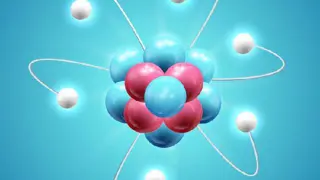
GCSE Chemistry............
CPD Certified | Free PDF Certificate | 2024 Updated | 24/7 student support | No hidden fees.
Learningidol
Summary
- Reed Courses Certificate of Completion - Free
- Tutor is available to students
Add to basket or enquire
Overview
GCSE Chemistry Online Training
Do you want to start a career in the GCSE Chemistry sector or learn more about it?
In GCSE Chemistry, you'll explore the fundamental aspects of GCSE Chemistry. This GCSE Chemistry offers a comprehensive overview, ensuring a deep understanding of GCSE Chemistry. Perfect for beginners and those looking to refresh their knowledge, GCSE Chemistry is the first step in mastering GCSE Chemistry.
Curriculum
-
Disclaimer 01:00
-
Lecture 1: Introduction to Chemistry 10:00
-
Lecture 2: Atomic Structure 10:00
-
Lecture 3: Chemical Bonding and Reactions 09:00
-
Lecture 4: The Periodic Table and Trends 09:00
-
Lecture 5: Chemical Calculations 11:00
-
Lecture 6: Chemical Reactions 11:00
-
Lecture 7: Organic Chemistry 09:00
-
Lecture 8: Environmental Chemistry 12:00
-
Lecture 9: Practical Chemistry 13:00
-
Lecture 10: Revision and Exam Preparation 12:00
-
Assessment 06:00
Course media
Description
GCSE Chemistry delves into the practical and theoretical aspects of GCSE Chemistry. Throughout this course, GCSE Chemistry emphasizes hands-on learning with GCSE Chemistry, ensuring that students can apply GCSE Chemistry in real-world scenarios. GCSE Chemistry is structured to make GCSE Chemistry accessible and engaging.
Certification
After successfully completing this GCSE Chemistry course, you will get an Instant Free digital certificate.
Who is this course for?
GCSE Chemistry is ideal for anyone interested in GCSE Chemistry. Whether you're looking to start a career in GCSE Chemistry or deepen existing knowledge, GCSE Chemistry provides the necessary foundation. If GCSE Chemistry fascinates you, GCSE Chemistry is your go-to course.
Requirements
To enroll in GCSE Chemistry, a basic understanding of GCSE Chemistry is beneficial but not mandatory. GCSE Chemistry is designed to take you from fundamental to advanced levels in GCSE Chemistry. All you need is a commitment to learning GCSE Chemistry and engaging with GCSE Chemistry.
Career path
Completing GCSE Chemistry opens numerous doors in the GCSE Chemistry industry. Graduates of GCSE Chemistry often pursue careers in areas related to GCSE Chemistry, equipped with the knowledge and skills acquired from GCSE Chemistry. The understanding of GCSE Chemistry gained in GCSE Chemistry is invaluable in various professional settings.
Questions and answers
Currently there are no Q&As for this course. Be the first to ask a question.
Certificates
Reed Courses Certificate of Completion
Digital certificate - Included
Will be downloadable when all lectures have been completed.
Reviews
Currently there are no reviews for this course. Be the first to leave a review.
Legal information
This course is advertised on reed.co.uk by the Course Provider, whose terms and conditions apply. Purchases are made directly from the Course Provider, and as such, content and materials are supplied by the Course Provider directly. Reed is acting as agent and not reseller in relation to this course. Reed's only responsibility is to facilitate your payment for the course. It is your responsibility to review and agree to the Course Provider's terms and conditions and satisfy yourself as to the suitability of the course you intend to purchase. Reed will not have any responsibility for the content of the course and/or associated materials.


